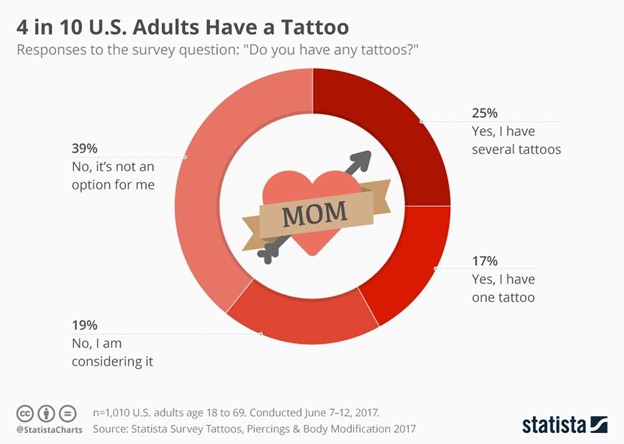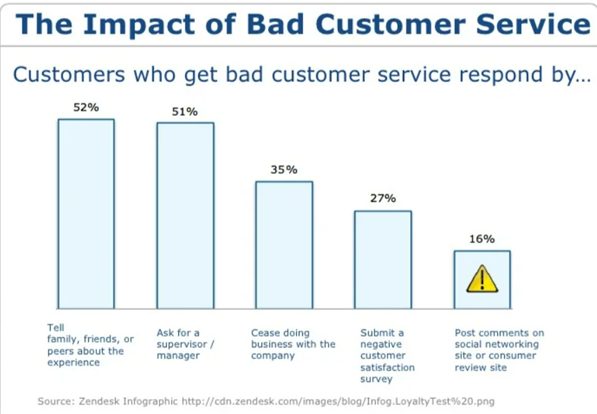In recent decades, the tattoo industry has undergone significant transformation, evolving from a niche subcultural practice into a multi-billion-dollar global business. Alongside this growth, the need for establishing clear ethical norms and high professional standards has increased. The relevance of this topic is determined not only by the aesthetic component of tattooing but also by its direct impact on the health and well-being of clients. The absence of unified, universally recognized standards and ethical codes can lead to negative consequences, such as the spread of infections, allergic reactions, as well as legal disputes and reputational losses for the industry [1].
The relevance of this article is dictated by the need to systematize knowledge about the ethical and standardized aspects of the tattoo business, as well as to reflect on the experience of professionals who have achieved outstanding success by demonstrating a commitment to high principles of business conduct. The aim of the article is to analyze existing ethical and professional standards in the tattoo industry and to justify their critical role in ensuring sustainable development and a positive image of the industry.
Ethical principles in the service sector, especially those directly affecting the human body, require particular attention. Applied to the tattoo business, this includes informed consent, confidentiality, compliance with sanitary standards and hygiene requirements, as well as honesty regarding the services provided and the materials used [2]. The scientific background of this topic encompasses various disciplines, including medicine, microbiology, law, and sociology. Studies show that risks associated with tattoos, such as infectious diseases (e.g., hepatitis C, HIV) and skin reactions, can be minimized through strict adherence to aseptic and antiseptic procedures, as well as the use of high-quality pigments and equipment [3].
At the international level, there are various approaches to regulating the tattoo industry, but universal standards have not yet been developed. In some countries, legislative acts regulate licensing of artists, requirements for instrument sterilization, and ink composition. For example, in the European Union, the regulation of the chemical composition of tattoo inks is carried out under the REACH (Registration, Evaluation, Authorisation, and Restriction of Chemicals) regulation, aimed at protecting human health and the environment [4]. This demonstrates an understanding of the need for a scientific approach to minimizing risks.
The implementation of ethical and standardized approaches in the tattoo business includes several directions. First, strict compliance with sanitary and epidemiological standards, which implies the use of disposable needles, gloves, regular surface disinfection, and sterilization of reusable instruments using autoclaves. Maintaining a log of sterilization and waste disposal is a mandatory element of responsible practice. Second, careful informing of the client about the procedure, potential risks, aftercare instructions, and contraindications. This ensures so-called “informed consent,” which is an ethical norm in medicine and should also be applied in the tattoo business. Third, continuous professional development of artists, training in new techniques, and familiarization with the latest achievements in hygiene and safety. Professional associations, such as the Alliance of Professional Tattooists (APT) in the USA, develop their own codes of ethics and conduct training programs, promoting the dissemination of best practices.
Examples of successful implementation of high standards in the tattoo business demonstrate that an ethical approach and strict adherence to standards can be a competitive advantage. Consider a hypothetical case: “Art and Needle Studio.” This studio invested significant resources in staff training, acquisition of high-quality equipment, and certification of all materials used. They developed their own internal quality control system, including regular checks for hygiene compliance, client satisfaction assessments, and a feedback system. As a result, the studio gained a high reputation, a loyal client base, and became a role model in the region.
Another example may be associated with the implementation of digital platforms for client management and appointment scheduling, which include built-in informed consent forms and automatic reminders for aftercare compliance. Such a model increases transparency and reduces the risk of misunderstandings between the artist and the client.
Analysis shows that ethics and standards serve as the foundation for sustainable growth and prosperity of the tattoo business. Professionals who have achieved outstanding results in the business aspects of the industry typically demonstrate a deep understanding of this interconnection. They recognize that short-term gains from neglecting ethical norms carry long-term risks, including loss of client trust, lawsuits, and negative impacts on the entire industry. An example of such an approach is strict adherence to safety requirements, which helps avoid costly client health issues and subsequent reputational losses [5].
Integration of ethical principles into the business model manifests in transparency of information, honesty in advertising, use of only certified materials, and continuous quality control. This not only contributes to creating a safe environment for clients but also forms a positive image of tattooing as an art form and highly professional service. Compliance with standards also increases the industry’s attractiveness to potential investors and partners by reducing business risks.
Conclusions about the importance of ethics and standards in the tattoo business are confirmed by several scientific studies. For example, research in public health has repeatedly emphasized the link between non-compliance with hygiene standards in tattoo salons and the spread of infectious diseases [3]. Studies on consumer behavior demonstrate that reputation and trust play a decisive role in selecting a tattoo artist or studio, while ethical aspects such as transparency and responsibility directly influence trust formation [6].
Regulatory bodies in different countries, such as the U.S. Environmental Protection Agency (EPA) and the European Chemicals Agency (ECHA), develop and implement standards regarding ink quality and procedural safety. This confirms the scientific basis of requirements for sterility, pigment composition, and artist qualifications, emphasizing that these measures are not arbitrary but based on data on potential health risks [4]. Thus, ethics and standards are not merely desirable but necessary elements for the development of a mature and responsible tattoo industry.
The study showed that ethics and standards are an integral part of the successful and sustainable development of the tattoo industry. The synthesis of theoretical knowledge about hygiene standards, material safety, and informed consent with the practical experience of leading professionals demonstrates that a responsible approach to business not only minimizes risks but also creates competitive advantages. Adherence to high-quality standards and ethical principles strengthens client trust, builds a positive studio reputation, and contributes to revenue growth.
Recommendations for further development include:
- Development and implementation of unified international standards: Creation of universal guidelines on safety, hygiene, and artist qualifications.
- Increasing client awareness: Educational campaigns on the risks and benefits of choosing licensed and ethical tattoo studios.
- Continuous training and certification of artists: Ensuring access to up-to-date knowledge and validation of qualifications through a system of regular certification.
- Integration of ethical codes into business strategies: Incorporation of social responsibility and transparency principles into every aspect of tattoo studio operations.
The applicability of these conclusions extends to various contexts—from small private studios to large networks. Implementation of these recommendations will allow the tattoo industry to become a safer, more professional, and respected service field, ensuring its sustainable development in the long term.
References:
- Armstrong, M. (2005). Tattooing, Body Piercing, and Permanent Cosmetics: A Historical and Current View of State Regulations, with Continuing Concerns. Journal of Environmental Health, 67(8):38-43, 54, 53.
- DeMello, M. (2000). Bodies of Inscription: A Cultural History of the Modern Tattoo Community. Duke University Press.
- Dieckmann, R., Brockmann, S., Hammerl, J.A., Boone, I. (2016). The Risk of Bacterial Infection After Tattooing A Systematic Review of the Literature. Deutsches Ärzteblatt international 113(40).
- European Chemicals Agency (ECHA). (2022). REACH Regulation for Tattoo Inks and Permanent Make-Up. Retrieved from https://echa.europa.eu/hot-topics/tattoo-inks
- Ernst, M., Borkenhagen, A., Fegert, J.M. et al. (2022). The association of childhood abuse and neglect with tattoos and piercings in the population: evidence from a representative community survey. BMC Psychol 10, 105 (2022). https://doi.org/10.1186/s40359-022-00811-x.
- Celestin, M., Sujatha, S., Kumar, D. (2024). ANALYZING THE ROLE OF ETHICAL BUSINESS PRACTICES IN BUILDING CONSUMER TRUST AND LONG-TERM BRAND LOYALTY: LEVERAGING CORPORATE ETHICS AS A COMPETITIVE ADVANTAGE. DOI:10.5281/zenodo.14010882.
Find a Home-Based Business to Start-Up >>> Hundreds of Business Listings.

















































